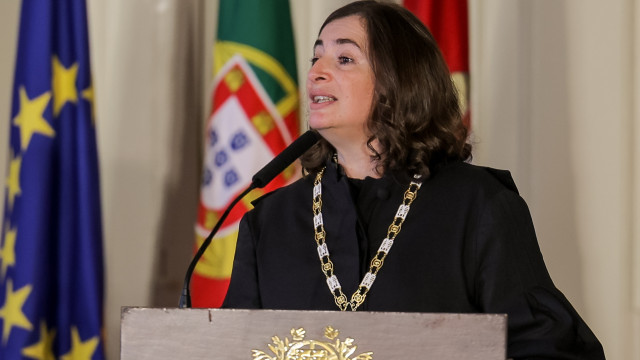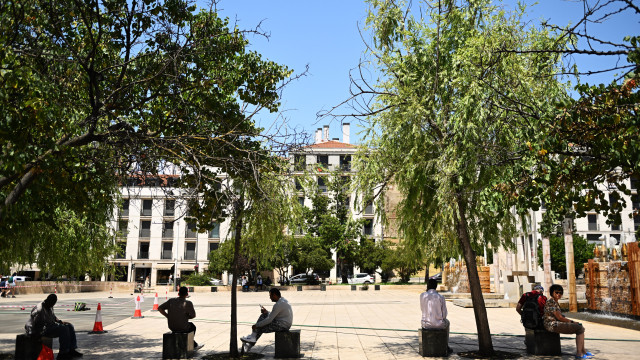The President of the Republic, Marcelo Rebelo de Sousa, referred the foreign nationals law to the Constitutional Court (TC) on Thursday.
“The President of the Republic today submitted the decree of the Assembly of the Republic amending the foreign nationals law for urgent preventive review of constitutionality by the Constitutional Court,” announced the Presidency of the Republic.
According to the head of state, the decree “introduces or alters a significant number of concepts of an indeterminate nature or, at least, of difficult (or even impossible) concrete determination,” which may not only “complicate the application of the law, not contributing to the necessary and desired legal certainty and certainty of the law, principles constitutionally guaranteed” but also “generate differentiated and discriminatory treatment, certainly presenting a considerable and increased risk of litigation in a matter fundamental and of great importance for our country and for the interested parties.”
He added that, in such a sensitive matter, “it is not advisable to have conceptual ambiguity and recourse to indeterminate concepts, potentially violating the constitutional principle of legal certainty.”
Marcelo also argued that since the decree “deals with a matter of high political, social, and legal sensitivity,” it is “imperative to urgently ensure legal certainty and certainty of the law concerning the approved legal provision, avoiding potential differentiated and discriminatory treatments,” especially as the government considers it “imperious and urgent to regulate this matter.”
He therefore requested “urgent preventive review of the constitutionality of the norms” concerning the right to family reunification and the conditions for its exercise and set a 15-day period “for the urgent ruling from the Constitutional Court.”
Changes in family reunification may “increase irregular migration routes” and create “greater stratification”
Regarding family reunification, the official noted that the proposed restrictions on this essential mechanism for societal integration and family life appear to disproportionately and unequally restrict the principle of family unity, potentially failing to safeguard the child’s best interests, which are forced to deal with prolonged separations.
“Contrary to the objectives of the decree, such changes may potentially increase irregular migration routes by other family members who are now excluded from the right to reunification, such as the spouse,” he considered.
Meanwhile, the flexibility of family reunification criteria might contribute “to greater stratification among migrants based on their qualifications and sector of activity, diverging from the spirit of Council Directive 2003/86/EC of September 22, 2003, and undermining the principle of equality and the principle of non-discrimination enshrined in Article 13 of the Constitution,” he argued.
“On the other hand, the decree does not alter the more favorable treatment for family reunification applicable to refugees, asylum seekers, and international protection beneficiaries, which seems appropriate given it is a specific regime,” he added.
Marcelo emphasized that the proposed wording “substantially increases – triples – the decision period for the residence permit application for family reunification, eliminating the possibility of implicit approval.” This means “reuniting a family member in Portugal could take a minimum of about 3 and a half years, a demanding period given the administrative decisions to be made.”

The Order of Lawyers states that three different articles of the Portuguese Constitution may be being violated: 4th (Portuguese citizenship), 13th (principle of equality), 18th (legal force).
Carolina Pereira Soares | 14:58 – 23/07/2025
This period would also be “a violation of the principle of family unity and the best interests of the child, disrespecting the principle of administrative celerity, stipulated in Article 266, nº 2 of the Constitution, and potentially disproportionate in light of our fundamental law, with possible violations of the principles of equality, proportionality, and family unity, established respectively in Articles 13, 18, and 36 also of the Constitution.”
The President also noted that the decree “seems to introduce a subordination of rights, freedoms, and guarantees to operational constraints, specifically of AIMA, I.P., which seems to directly violate the constitutional principles of access to justice, equality, administrative celerity, and effective judicial protection, as well as proportionality.”
He also recalled that the issue of compatibility of these norms with European Union law is at stake, taking into account that the Charter of Fundamental Rights of the European Union, in its Article 47, enshrines the right to effective judicial protection, especially when dealing with administrative decisions on immigration and asylum.”
[Updated at 17:50]

The amendments approved in parliament to the “legal regime for the entry, stay, exit, and removal of foreigners from national territory” were sent by the President of the Republic to the Constitutional Court.
Lusa | 18:04 – 24/07/2025




